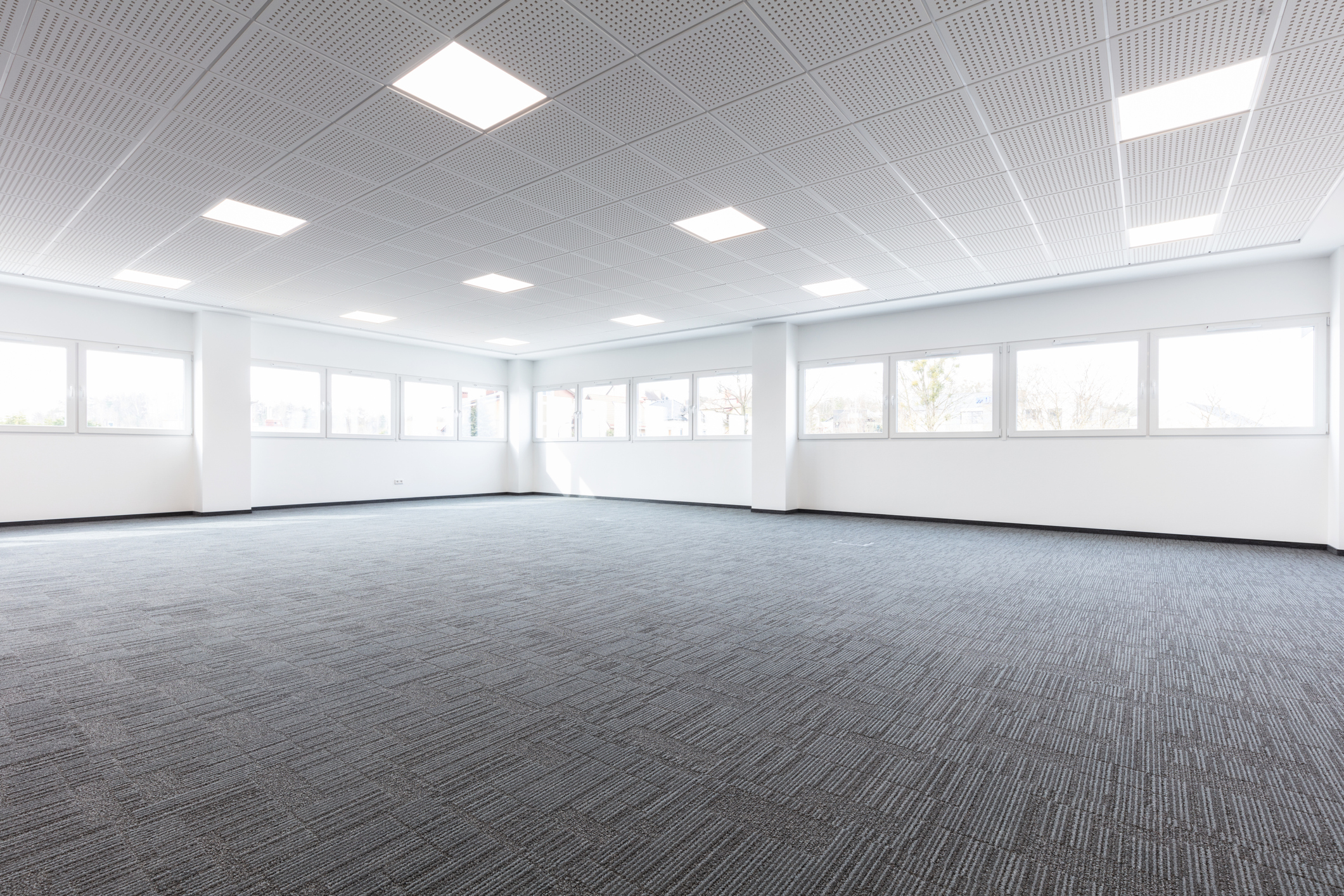Commercial real estate (CRE) technology has become a topic of conversation in the industry for some time now as property owners and operators turn to proptech to monitor everything from tenant relations and compliance to energy use.
But exactly what is an intelligent building? And how are intelligent buildings the future of property management? We sat down with Tom Kendall, Solutions Engineer at Building Engines, to answer these questions along with others that many property owners and operators still have.
Tom has worked in the CRE tech space for almost six years, with a focus on customer success, functionality adoption, and solutions alignment. Having worked with hundreds of different customers and tens of thousands of buildings over the years, Tom has had the privilege of seeing portfolios of properties transform to become efficient and intelligent, while increasing their ROI in the process. Being a part of the CRE industry has given him the opportunity to see first-hand the evolution of technology within properties and the direction that the industry is headed.
1. What is an intelligent building?
Tom Kendall: An intelligent building is one that’s a bit more predictive. That’s one of the things I see the spark of in Prism and I’m really excited for the future. When things happen – whether they’re seen or unforeseen, like a work order for a burst pipe or a filter change that happens quarterly – if it was done in a building that’s not considered an intelligent building, it can put an undue burden on the team. When you think of an intelligent building, you think of processes being much more streamlined where you can set up protocols ahead of time.
And beyond that, the connectivity of a system. So, really having one login is the goal in 2022 with software. Being able to go to one place to be able to do your job, where everything is in one place and in the palm of your hand on a mobile device.
2. How do intelligent buildings support a healthy work environment?
TK: Intelligent buildings help tenants with transparency so when something happens to their space or the area surrounding their building, everything is available to them quickly, easily, and in one place. That’s really the future of property management – providing tenants with a platform to see, for example, what shops are around me? Where can I go to get coffee? And on the other end of it, how frequently is the trash taken out? How long am I going to have to wait to get this issue resolved? It’s all about transparency and effectively managing the tenant experience so you’re providing a workplace tenants want to occupy.
3. How did tenants get this information before? Did they ever have transparency?
TK: In a lot of commercial property buildings that are a bit smaller or old school you’ll still see the “old” way of doing things, which is a bulletin board or a static message board on a TV that has to be updated daily or weekly. It’s not connected with other systems that can make it automated.
Think of an intelligent building in terms of an airport. Just like a plane ticket – if you show up at the airport and you’re expecting to get a paper ticket, it’s going to take you longer. Whereas if you show up with that boarding pass on your phone, it makes the process simpler. That’s the same vision we have with Prism. So, for intelligent buildings, think about things like visitors passes and not needing to print them out. Not only does it save time and money, but it also helps the environment by not wasting paper.
4. Speaking of saving money, is investing in tech worth it? How will it help save money?
TK: There are two approaches to those questions. One is the cost of your team and the amount of hands you need to do something. And the other is predictive costs and being able to identify places where you can improve or decrease costs by knowing how a building is functioning.
Let’s look at the first one – saving money by saving on labor costs. That’s an important one especially today, as companies continue to face labor shortages. A large-scale building portfolio that used to require 20-30 engineers would now only need six thanks to the data centralization and task automation that proptech like Building Engines provides. Tickets can be rerouted, things aren’t done by paper, engineers don’t need to run back to their desks because they can see it on their phone. Now there’s ways you can utilize those employees in different areas.
The other way is more from the predictive standpoint or the reporting aspect. If you have no reporting tools or analytics to look at your buildings at a high level and say, where are you doing things efficiently? And where is there room for improvement? You’re sitting there waiting for technology to pass you and for other buildings to outcompete you. Software allows you to capture metrics and understand where there’s an unneeded spend.
5. Can you provide a real-life example of these cost savings?
TK: Sure. Let’s say there’s a building with 16 HVAC units and one unit is really hot all the time. They’re spending all this money on inefficient equipment and have two or three work orders a year because it shuts down. A lot of properties will contract that out to a vendor and pay the cost to repair the equipment.
But if you had a tool for those operations that you can say, does it make more sense to spend $85,000 to replace that HVAC unit? You can make a decision based on what the data is telling you instead of making a guess in the dark. You can say, over the past four or five years we’ve spent $45,000 on repairing this piece of equipment. If we had known five years ago, we could have just replaced it for $85,000 and we wouldn’t have incurred all those costs. And not only that, but our engineers wouldn’t have to deal with it all the time. As you implement a system into your property, you can pick up on that data and analytics and suddenly, 10 years from now, you’re saving much more money instead of incurring it.
6. How is CRE technology helping people to do their jobs better?
TK: If you don’t have a system in place or have a system that’s not on the newest technology, then your techs in the field must leave their desks in the morning knowing where to go first, second, and third. But in the middle of that second task, they get a call because there’s an emergency on the 6th floor. Then they have to go to the 6th floor or call someone else.
Instead, if they had an app on their phone that sent them notifications, they can see there is a high priority item that can be assigned to “John” who is available. That’s two clicks instead of two phone calls. It saves time and energy and makes the whole process much more efficient.
7. Is an intelligent building a competitive differentiator? Or is it just a “nice to have”?
TK: A competitive differentiator. There is an example of a property in NYC – I walked in the front door of that building, gave my name, and I got a buzz on my phone with a barcode. I was able to use that barcode to scan into the turnstiles. It let me in and told me what elevator to go to. There were no buttons in the elevator, it automatically took me to the floor I needed to go to. So, not only is it efficient and cool, but I would also want to be a tenant in that building with that technology. It’s really appealing, it has this certain status with it. Renting that space becomes easy and adds a factor of security.
8. Creating a fully integrated intelligent building strategy seems like a daunting task. Where should owners and operators begin?
TK: The easiest way is to speak with the software provider if you want a really streamlined, simple workflow for all your operations. They can be your partner and share best practices based on their customers’ experiences. Then, they can walk you through how to be successful.
9. What sort of technology do owners and operators need to successfully make their buildings intelligent?
TK: You need a system that can plug into other systems in a seamless and immediate capacity. The key is to make sure that you’re not wasting time entering information in one system and then reentering it in another. All systems should talk to each other. Finding a system that provides that ability is the key piece to what you need when you’re trying to make your building intelligent.
10. You’re attending Realcomm 2022. How can people follow up with you?
TK: Yes! I will be attending Realcomm 2022 in Orlando from June 15th – 16th at Booth #431. Please stop by to chat! I would love to continue the conversation and talk more about our next-gen building operations platform, Prism. I’m happy to give you a demo!
















